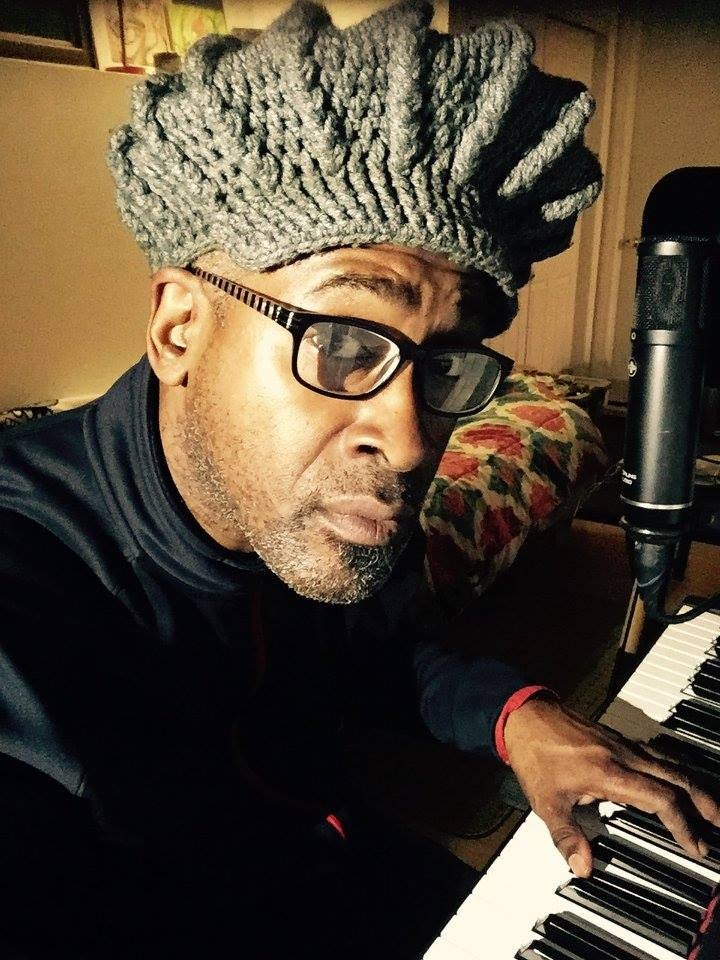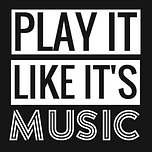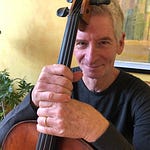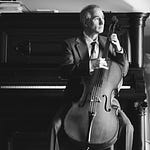042: Bruce Mack
Good morning! This is Play It Like It's Music, I'm Trevor, thanks for listening.

On Wednesday, June 3rd of 2020 music is not content, it's connection. And I've been bothered about everything going on this week, glued to the news just like a lot of you.
We went out and marched down at the Grove in LA, which was lovely because we left right before before the cops broke it up with tear gas.
It turns out Beverly Hills doesn't take kindly to marchers. But up until that moment it was a literal walk in the park with a committed group of peaceably assembled people.
Peaceful isn't the right word to describe something like that. More like it was harmonious, beautiful, honest. Justified criticism of something so obviously wrong like the routine state-sanctioned murder of innocent people shouldn't need to have "peacefulness" imposed on it from outside by anyone, let alone the targets of the criticism...
But this is a show about music.
You know, people like to argue about how much music and politics should mix but I personally don't believe there's a legit argument to be had, because if you really understand music then you know that there really is no line between music and life. Music is everywhere and it's a part of every living experience we have, not just when we choose to sing about it. Likewise, there's no line between politics and life. Sometimes you turn the politics on, sometimes it turns on you.
But don't pretend there's a line there where it stops existing or being relevant. You'd only be blinding yourself. Like where is the line between politics and human rights? Show me where that line is and then I'll believe someone who says a musician can't also be political.
But let's talk about Black music for a second.
For my part I don't have anything to say about black music except "thank you". And then make my own musical offering in return. We can see that a musician of any race is always engaged in hot pursuit of the infinite, and most musicians on the whole understand that cooperating with each other across lines helps move the whole endeavor forward.
But it's not always up to musicians. We know that plenty of people - collaborators and customers alike - line up to take advantage, both of the hard work we do and also of the cultural contributions people bring. Black musicians in particular have historically gotten ripped off by the music industry, even as their compositions, performances, innovations and energy has dominated in public. Follow the money and you'll be shocked at where it doesn't go, especially those of you who believe the hype.
It's not just that people have a right to be mad, but they have a right to organize to change things. Today on the show I'm lucky to have Bruce Mack who is a board member and former president of the Black Rock Coalition to talk to us about growing up in New York City during the 70's and 80's, and how some of the artists of that time chose to show up to the scene with more than just a song.

Bruce is a be-bop style vocalist who incorporates vocal improvisation into funk and other forms of music. B-Mack also plays several instruments, including keyboards, electric bass, percussion and drum set. He performs and contributes original music to multiple ensembles, most notably Burnt Sugar, Melvin Van Peebles wid/ Laxative and Nubian Messengers.
The Black Rock Coalition is well-known to fans of the many bands that make up its membership - a few of which are Living Colour, Meshell Ndegeocello, 24-7 Spyz, Chocolate Genius, Don Byron and Nona Hendryx. An iconic organization that remains vital to this day, the BRC is a collective of artists, writers, producers, publicists, activists and music fans assembled to maximize exposure and provide resources for Black artists who defy convention.
We've heard from members previously on this show: check out episode 2 with Luqman Brown of Dope Saggitarius and episode 4 with Mazz Swift. Today it's all about native New Yorker, Bruce Mack aka B-Mack (the artist, the band). Settle in and let's listen:
Press PLAY above to hear my conversation with Bruce Mack.
Thanks for listening to Play It Like It’s Music. Thanks to Bruce Mack for spending some very generous time with us. You can find his music at b-mack.bandcamp.com and at Reverb Nation, Facebook, IG and Twitter.
If you like this show, please tell a friend:
Follow me on social media @trevorexter and talk to me on there if you have thoughts about the show.
We're all contending with a mutating professional landscape, jacked revenue streams, a catastrophic global pandemic and plenty of other noise out in the culture.
But you gotta keep playing.
We don't draw any lines here between scenes or styles.
As always, thank you for listening and remember to play it like its music.
You can check out my music on bandcamp and other places. It’s all at my website, trevorexter.com. Sign the mailing list on substack to get this show sent right to you the very moment it comes out. Consider hiring me to score your piece, do some cello, teach you lessons, produce your show or back you up onstage.
Music is a beautiful thing and it makes the world go round.
Big love to your ears.
Trevor
(Did you press play yet?)
.
.
.
If you like this stuff, help it spread by sharing it!
Hear songs: the “Trevor Exter Playlist” on Spotify
Hire me remotely for cello overdubs or to score your piece.
Or to produce your podcast.
More @trevorexter.com
psst… sign up for emails:













Share this post